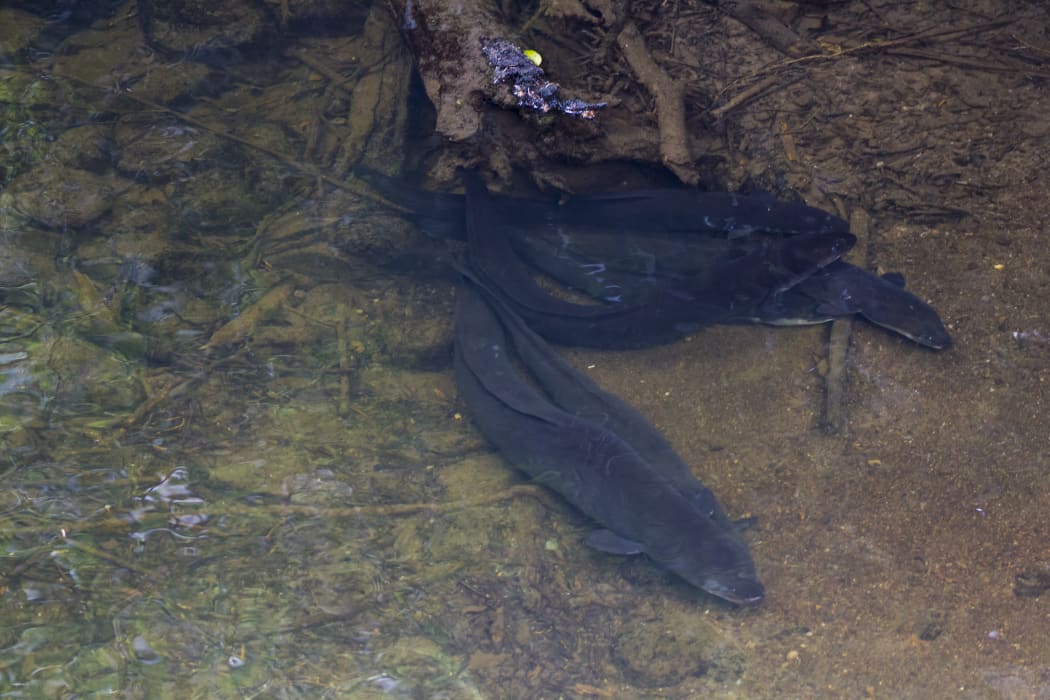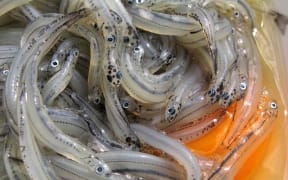Damning research into the populations of New Zealand's freshwater species indicate three-quarters are in decline.

A research has found three-quarters of freshwater fish species in New Zealand are in decline. Photo: 123rf
The author said central and local government have failed to protect our native fish.
The research, published by Victoria University of Wellington, looked at 25 different fish species over the past 47 years.
Twenty of the fish studied as part of the research were natives and 15 of those were in decline. Thirteen native species showed significant declines.
Habitat loss and pollution have been named as the main drivers of this decline.
One of the authors of the report, Mike Joy said dams and irrigation in particular were having a negative affect, as it changed the natural hydrology of the riverbeds.
"The intensification that goes with the dams and irrigation means you have more nitrate and nutrients going into the systems, which means they get sicker and get algal growth, which leads to oxygen depletion and a whole raft of effects," Dr Joy said.
Dr Joy said the dams also blocked off migratory species of fish, leaving fish populations isolated and condemned to eventual extinction.
"We have these little populations we're protecting somewhere, but functionally they're gone and once they're gone from there, there's no replacement and we don't see them again," he said.
The report was conservative, and the problem was likely to be much worse, he said.
The report showed how badly central government and local government have protected fish and it should be treated as the canary in the coal mine, Dr Joy said.
"DOC [Department of Conservation] has failed badly in not protecting those freshwater fish, not doing anything about those barriers, despite having legislation that says you're not allowed to impede the passage of those fish, all they've done is come up with some guidelines."
Dr Joy said to top it off some of these endangered species were part of the whitebait catch and the longfin eel was commercially harvested.
"They're in trouble and then we go and take their juveniles out of the system and eat them and sell them, so DOC really needs to lift their game in that area."
However, DOC's freshwater technical advisor Rosemary Miller said the research was not surprising, and reflected DOC's own report on the latest conservation status of freshwater fish species.
She said collectively we were all not doing enough.
"It's a matter for landowners, businesses, local government, individuals, it needs everyone to do things rather than thinking there's a silver bullet," she said.
Ms Miller said intensive agriculture was one of the key impacts on threatened species.
"That's something that is beyond the control of Department of Conservation, because it's an area of the Resource Management Act, and sure DOC works with councils to identify where and how things should be improved through their panning instruments, but it's a big challenge, it's really hard to change land uses and it needs to happen."
On the other hand, she was encouraged by the new Fish Passage Guidelines that have been created in collaboration with a range organisations and regional councils.
"All those organisations that were involved with developing those guidelines are obviously going to be more likely to put them in place and implement it," she said.
She said the Minister of Conservation has also asked DOC to review whitebait management, and the department was currently establishing the working group.






